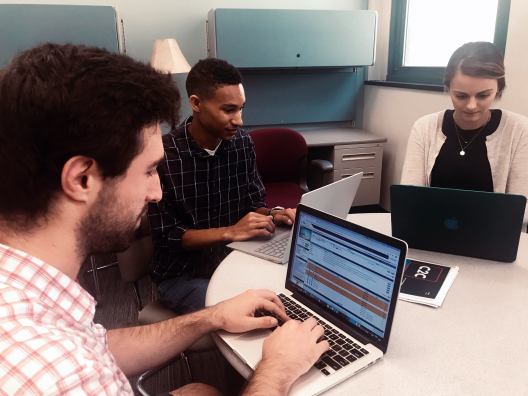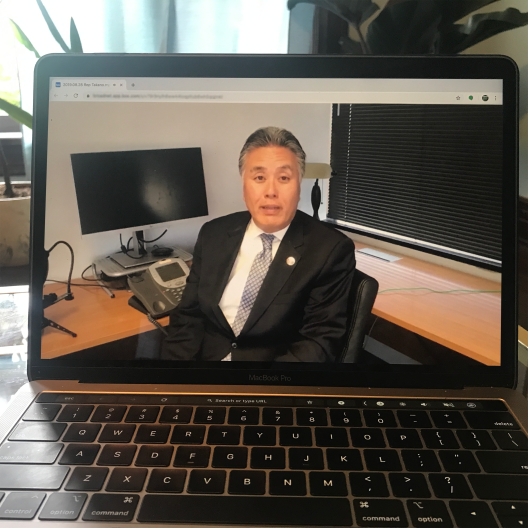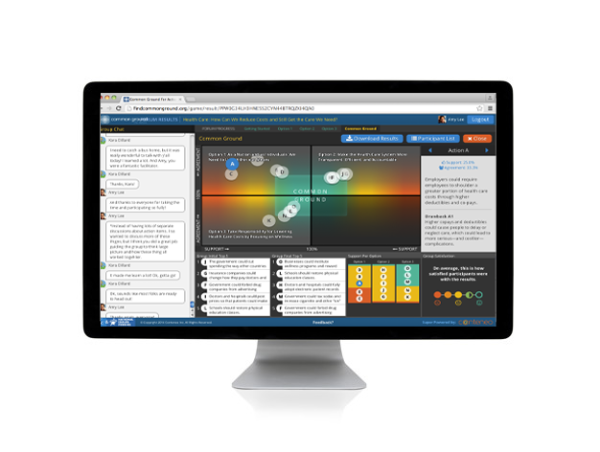Our Toolkit

IDEA works with all levels of government to recruit, connect, and support elected officials to implement our “toolkit” of democratic innovations using cutting-edge analysis and rigorous social scientific methods. Our democratic innovations toolkit is an evidence-based, established method of increasing trust between citizens and their elected officials and reviving the democratic process.
IDEA focuses on Deliberative Town Halls (DTHs)– a scalable, adaptable, and scientifically validated democratic innovation. IDEA also use several democratic innovations or create hybrid models of a DTH, like Citizens’ Assemblies, hybrid models, common ground for action and others. All democratic innovations in our toolkit are designed and adapted to best facilitate involving citizens in the policy-making cycle while also considering particular political, cultural, and geographic needs. IDEA’s work to complements the use of other democratic innovations already in use around the globe.
IDEA’s toolkit includes (1) implementing a deliberative session, (2) designing deliberative sessions to (3) produce data-driven policy information for policymakers, and (4) analyze quantitative evidence for the impact of the deliberative session. IDEA manages aspects to implementation including recruitment, technology, facilitation of the town halls, administering surveys as well as comprehensive analysis. There are no financial costs to participating elected officials.
Using Our Toolkit
Once an elected official (or group of officials) elects to participate, the research team collaborates with their offices on high-level decisions and then develops a scientifically rigorous implementation plan.
The process of implementing the toolkit follows:
- IDEA coordinates with the elected official to schedule an online event using a democratic innovation best suited to their needs. This is typically a Deliberative Town Hall or hybrid model. Then we cooperatively select the topic for discussion.
- The elected official works with IDEA non-partisan briefing materials on the topic of discussion that are inclusive and accessible for participating citizens to read and access before the event.
- IDEA recruits a representative sample of constituents to attend the session using a variety of recruitment strategies (discussed with and approved by participating offices) and administers a pre-survey with questions that focus on trust in government, trust and faith in the elected official, political issue opinions, potential policy actions, and general demographics.
- On the day of the session, IDEA assists the Member’s office in getting set up and handles all technology.
- The deliberative events are implemented with support from IDEA. For example, DTH events are a one-hour session for elected officials and citizens hosted online. IDEA’s research teams are available in real time for representativeness and citizens to ensure deliberative quality.
- IDEA administers a post-survey to constituents who participate, and then conducts analysis showing the impact on constituents’ opinions, trust in government, faith in democracy, or other issues, before and after the event.
- The research team provides the elected official with an in-depth report that analyzes the session as well as survey data from participating constituents taken before and after the session.
- Finally, the elected officials share the results publicly and are invited to complete a brief interview. This data allows IDEA to evaluate impact among elected officials and refine best practices

Digital DTHs typically cost less to organize than deliberative alternatives. This allows events to be more inclusive and a larger forum. DTH take less time, to convene, enabling agile responses to fast-moving issues and they require less time from citizens. Events are typically one hour and lead to more and more diverse participation which enhances legitimacy and inclusion.
We recruit representative groups of citizens to engage with officials on a single issue. Then, we provide succinct, reliable, non-polemical information to subsidize citizens’ time, promote quality discussion, and level people’s ability to contribute effectively. Neutral moderators (e.g., journalists, civil society leaders, academics) promote trust and independence. DTHs can emphasize (a) priorities and agenda setting, (b) consultation before policymaking, (c) accountability after, (d) a combination, or (e) support for other forms of engagement.
Deliberative Town Halls have proven to be:
- Highly effective; DTH increase voting rates, enhance trust in government and support for democracy, reduce polarization, and provide officials with inclusive, actionable insights.
- Popular with lawmakers and governments as a means of connecting with their constituents positively
- Positive experiences and impactful among citizens who feel the most alienated from politics
- Impactful in promoting equity and diversity
- Scalable and flexible; forums can have 70 and 7000 participants produce similar gains
- Accessible; these lessen trade-offs between open access and equality of influence by tracking participants recruited by sortition versus those who select in themselves.
- Popular with citizens and officials; most participants would like to have more and frequent access to these events
- Learn more about specific DTH projects and their impacts.
Online Deliberative Forums via Common Ground for Action

Another tool for deliberative constituent engagement IDEA has pioneered are Deliberative Forums using the Common Ground for Action (CGA) platform.
Every elected official knows how difficult it is to reach a real cross-section of their constituents and have a productive, civil conversation about a controversial issue, especially online. CGA is a simple but sophisticated platform that provides a visually engaging, structured way for constituents to have these conversations, to think more deeply about an issue and to better understand the judgment of others with different views. Post-forum analysis from a CGA forum also provides a legislator/staff a wealth of useful information about where there is common ground, as well as why constituents support or don’t support various policy options, in a way that is far different and deeper than what you get from polling or even focus groups.
CGA forums are 90-minute, facilitated, small-group deliberations. In these small group deliberations, participants earn more about an issue, examine options for dealing with the issue, weigh tradeoffs, and find common ground, with beautiful visuals that let participants actually see their judgment evolve in real-time. Click here to see a video of a forum.
Citizens Assemblies
Citizens Assemblies are another powerful form of deliberative constituent engagement in wide use outside the U.S. IDEA is working with its Senior Innovation Fellow, Dr. Marjan Ehsassi, to integrate aspects of Citizens Assemblies into Deliberative Town Halls and to come up with new hybrid events that would combine uses of both tools.
